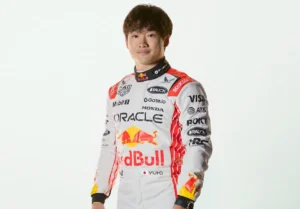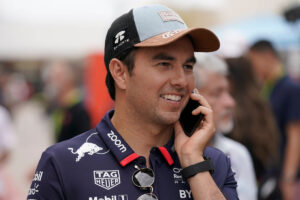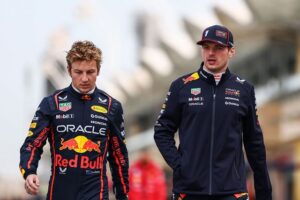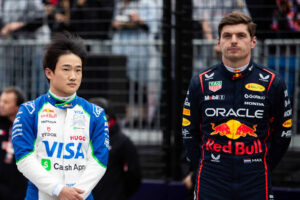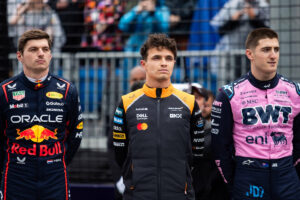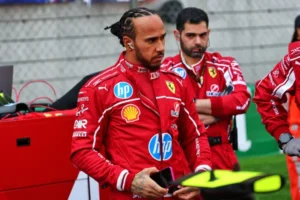Breaking:Zak Brown: F1 can’t ‘unwind what’s in place’ amid V10 engine rei….read more
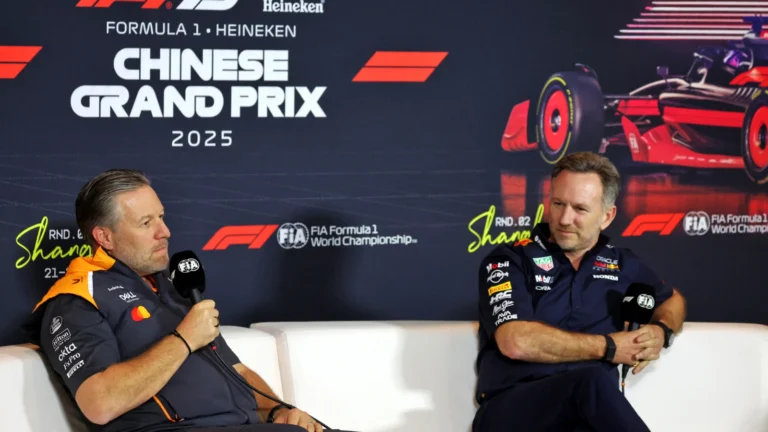
Zak Brown: F1 can’t ‘unwind what’s in place’ amid V10 engine rei….read more
McLaren CEO Zak Brown has expressed his skepticism about the possibility of reintroducing V10 engines in Formula 1, stating that it would be difficult for the sport to “unwind what’s in place” due to the extensive changes currently underway in the sport’s engine regulations. This debate has gained traction in recent weeks, as discussions intensify around the future of the sport’s power units, especially with the introduction of new V6 hybrid engines next season.
The speculation surrounding the return of V10 engines, which were last seen in F1 in 2005, has become a hot topic. This idea has gained momentum amid discussions about the new hybrid power units that will come into play with the 2026 regulations. The new engines are set to have a more balanced distribution between the internal combustion engine and electric components, which contrasts with the current V6 hybrid engines. Some teams, especially those that manufacture their own engines, have expressed concerns that introducing V10s now would create significant logistical and technical challenges.
Ahead of the Chinese Grand Prix, Red Bull team principal Christian Horner spoke about the issue, acknowledging that while the 2026 regulations may not offer the excitement some fans crave, reintroducing V10 engines would be a drastic step backward. Horner admitted that while he, as a fan, would love to hear the roar of the old V10 engines, the transition back to them would be difficult to justify. He noted that the sport would face significant challenges in trying to balance such a change with the current direction of F1’s development, especially considering the massive effort already going into the hybrid engines for 2026.
From a technical standpoint, Horner explained that the introduction of the new hybrid engines could limit the excitement of the racing, as the chassis designs will need to compensate for the split between combustion and electrification. While the “romantic” allure of a screaming V10 is undeniable, he pointed out that the transition would require careful consideration, especially regarding the future path the sport is on. The big question, according to Horner, is when and how such a shift could happen and what it would mean for the plans already in motion for 2026.
McLaren’s Zak Brown echoed Horner’s thoughts, adding that the logistical challenges of making such a switch are significant. Brown remarked that the sport is already deeply invested in the changes to power units, and trying to turn back time by reintroducing V10 engines would be almost impossible. With new players like Audi entering the sport and Alpine switching to Mercedes power units next year, Brown pointed out that it would be incredibly difficult to “put the genie back in the bottle” and reverse the direction of F1’s technical development.
Despite his reservations, Brown acknowledged that a return to V10 engines, especially if they were powered by sustainable fuels, could be appealing from a nostalgic perspective. However, he remained skeptical about the feasibility of implementing such a drastic change given the complex and ongoing power unit development. McLaren is currently in partnership with Mercedes High-Performance Powertrains (HPP), and Brown emphasized that they are happy with this arrangement, suggesting that any change to the engine regulations would not affect McLaren directly but could have wider implications for the teams involved.
Brown also reflected on the concerns surrounding the introduction of hybrid engines when they were first introduced, noting that, despite initial doubts, the switch had ultimately worked out well. He expressed confidence that engineers in F1 would embrace any technical challenge that arose and continue to innovate, as they always have. While the potential return of the V10s is an exciting idea for some, both Brown and Horner emphasized the importance of considering the bigger picture and the technical realities that F1 faces in its ongoing evolution.
In summary, both Zak Brown and Christian Horner agree that while the idea of a V10 return is appealing to fans, it would be a challenging and impractical change to make given the current direction of F1’s engine regulations. With significant changes already planned for 2026, the sport’s focus is on pushing forward with hybrid technology and sustainable fuels, rather than reverting to the past.

